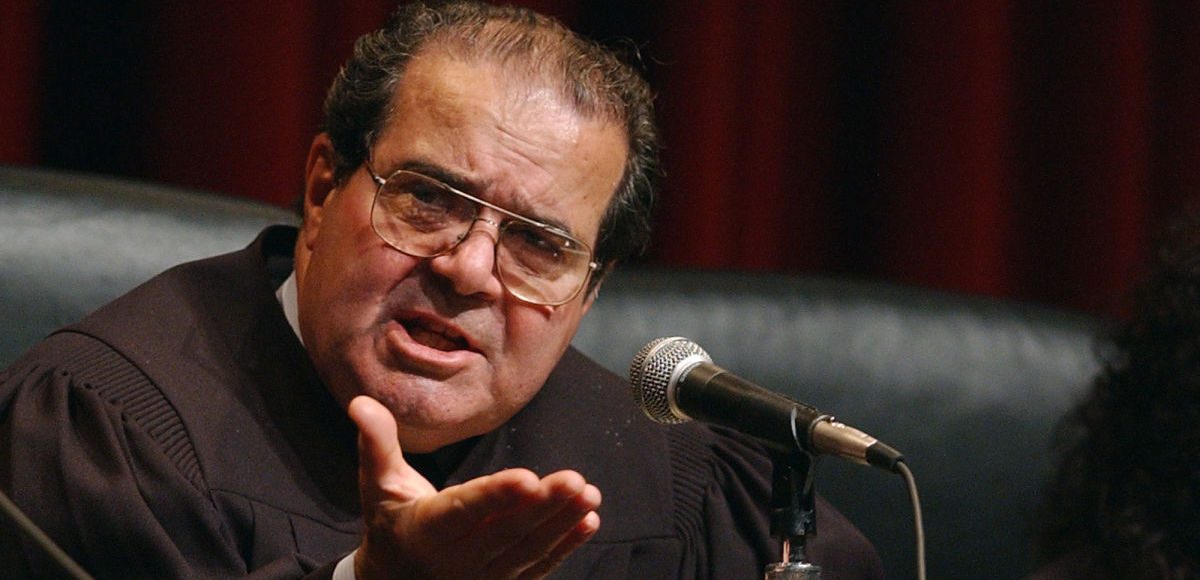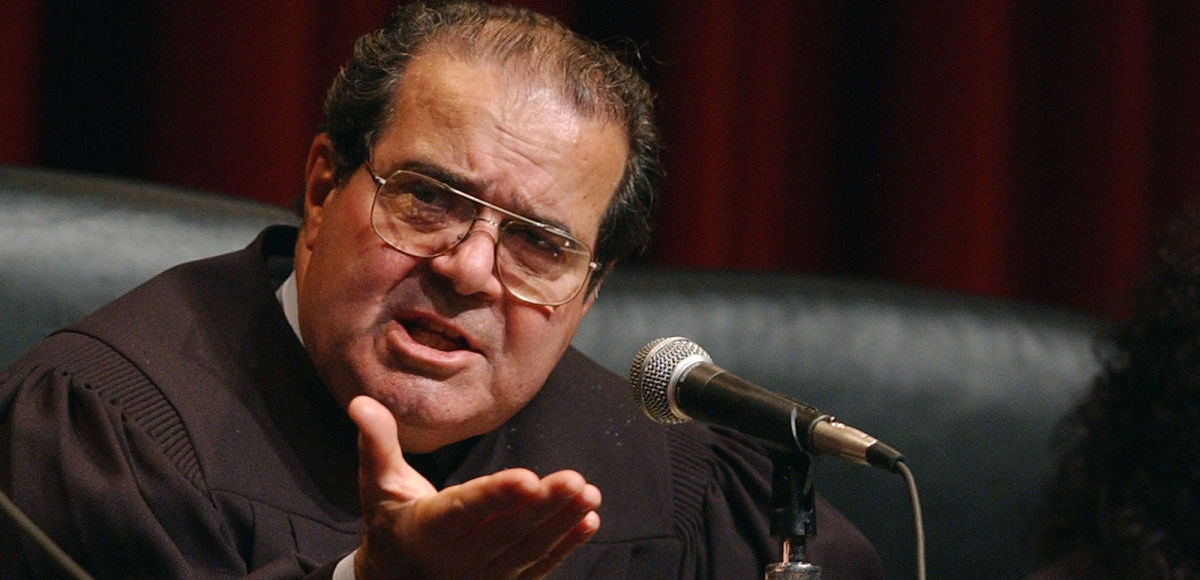

The late and great Supreme Court Justice Antonin Scalia poses a question to plaintiffs in 2005. (Photo: AP)
As Arkansas attempts to carry out eight lethal injections on death row inmates before one of its drugs expired on Sunday, the Left is once again trying to snuff out the death penalty.
Cries of cruel and unusual punishment are filling the pages of “news” stories and 3-minute segments after the lawyer for Kenneth Williams, the Arkansas death row inmate who was given a lethal injection on Thursday, called for an investigation into his execution.
He released a statement after an Associated Press (AP) reporter claimed his client lurched and convulsed–once violently–after he was administered the fatal drugs. Just for the record, involuntary muscular reactions are in fact well-known side-effects of the sedative midazolam, the first of three drugs administered during lethal injection.
Republican state Sen. Trent Garner, who witnessed the execution, said Williams did not “seem in pain. … It was not cruel, unusual, botched or torture.”
But that’s irrelevant as it pertains to the law.
In June 2015, the Supreme Court (SCOTUS) upheld the use of the drug, even as two dissenting liberal justices declared that it was “highly likely” the death penalty itself was and is unconstitutional. Justice Samuel Alito railed against the dissent, which was authored by Justice Sonia Sotomayor, painstakingly dissecting the five arguments the Left made against the drug and the death penalty, in general.
“Finally, we find it appropriate to respond to the principal dissent’s groundless suggestion that our decision is tantamount to allowing prisoners to be ‘drawn and quartered, slowly tortured to death, or actually burned at the stake,’” Justice Alito wrote. “That is simply not true, and the principal dissent’s resort to this outlandish rhetoric reveals the weakness of its legal arguments.”
But the late and great Justice Antontin Scalia not only took aim at the claim midazolam violates the Eighth Amendment prohibition on cruel and unusual punishment, but the desperate use of the argument itself as a means for undermining the death penalty, which is unquestionably constitutional.
What makes it unquestionably constitutional?
Well, as Justice Scalia mockingly observed, it’s in the U.S. Constitution. That’s right! The Constitution actually “contemplates” the death penalty and the founding fathers laid out when it is and is not permissible; again, right there in the Constitution.
In his opinion, which was joined by Justice Clarence Thomas, Justice Scalia gave a history lesson to those who haven’t bothered to read our founding document as only he could.
“Welcome to Groundhog Day. The scene is familiar: Petitioners, sentenced to die for the crimes they committed (including, in the case of one petitioner since put to death, raping and murdering an 11–month-old baby), come before this Court asking us to nullify their sentences as ‘cruel and unusual’ under the Eighth Amendment,” Justice Antonin Scalia joined by Justice Clarence Thomas wrote. “They rely on this provision because it is the only provision they can rely on.”
I’ll leave you with the best part. It’s the best because it’s so simple and yet you never hear the media even acknowledge it:
The response is also familiar: A vocal minority of the Court, waving over their heads a ream of the most recent abolitionist studies (a superabundant genre) as though they have discovered the lost folios of Shakespeare, insist that now, at long last, the death penalty must be abolished for good. Mind you, not once in the history of the American Republic has this Court ever suggested the death penalty is categorically impermissible. The reason is obvious: It is impossible to hold unconstitutional that which the Constitution explicitly contemplates. The Fifth Amendment provides that ‘[n]o person shall be held to answer for a capital . . . crime, unless on a presentment or indictment of a Grand Jury,’ and that no person shall be ‘deprived of life . . . without due process of law.’
Case closed.







